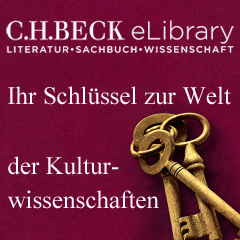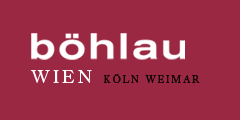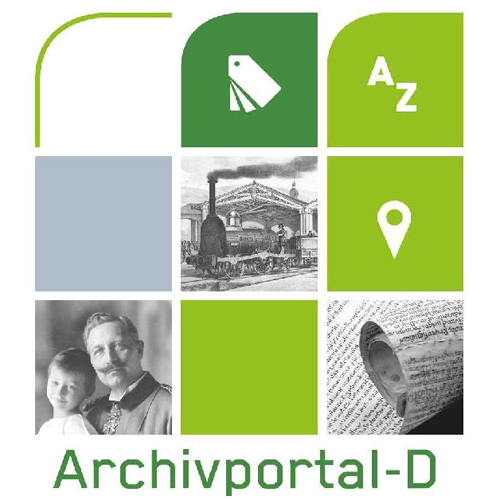(Margret Frenz, Oxford/Nantes, Moritz von Brescius, Konstanz)
Margret Frenz, Oxford/Nantes, Moritz von Brescius, Konstanz:
Introduction
Moritz von Brescius, Konstanz:
Empires of Opportunity: German Scholars Between Asia and Europe in the Mid-Nineteenth Century
Christof Dejung, Berlin:
The Firm as Contact Zone. European and Indian Staff in the Merchant House Volkart Bros., 1850s–1950s
Aparajith Ramnath, Kozhikode:
Engineers Beyond Empire: The Circulation of Technical Experts between India and Germany, c. 1900–1960
Margret Frenz, Oxford/Nantes:
Treating the Empire: Indian Doctors in the (Post-) Colonial British and French Sphere, c. 1900–1960
Elizabeth Buettner, Amsterdam:
Looking Back After Migration: Indian- Descended Communities Revisit the Colonial Past in Postcolonial Britain and the Netherlands
John Darwin, Oxford:
Comment
Abstracts
By investigating different forms of migration and social mobility between India and Europe,
this panel takes up the Historikertag’s overarching topic of ‘matters of belief’. It does so by
comparing and connecting historical and contemporary migration processes between Europe
and India from the early nineteenth until the late twentieth century, thus bridging the colonial and post-colonial divide. India and Germany have a shared, and at times contested past, evidenced for instance by the intensive academic engagement of German scholars with Indian languages in the nineteenth century, and currently, by a multitude of economic joint ventures between Indian and German companies. Migration movements from India and South Asia to other countries, particularly to Europe
and North America, have been researched extensively in the past couple of decades. However, many studies create the impression that this migration began only after the end of the Second World War (1945) and Indian independence (1947), whereas other studies have an ethnographic, contemporary focus. But Indians have moved across the globe for several centuries – as have Europeans to India. This panel, then, emphasizes the historical perspective on migration movements, and their global dimension, which will also allow for insights into implications of current migration movements.
By bringing together a number of different migratory and sojourning figures, from merchants to doctors and explorers to engineers, this panel sheds light on the experiences of actors in the past, who through their lives connected Europe and India in a multitude of ways that still shape the relationship between both regions today.
Moritz von Brescius, Konstanz:
Empires of Opportunity: German Scholars Between Asia and Europe in the Mid-Nineteenth Century
The paper investigates the involvement of German scientific experts in the British Empire in Asia during the mid-nineteenth century. It focuses in particular on a small band of scholars – the three Munich-born Schlagintweit brothers – who, between 1854 and 1857, found employment in the British East India Company (EIC), a former trading body that came to rule large parts of the Indian subcontinent. This case study is used to demonstrate how the German lands provided the scientific expertise for the exploration, administration, and exploitation of territories in South and Central Asia. Inspired by the paradigm of global history, the work presented here seeks to make a contribution to the recent endeavour to understand the transnational nature of European imperial systems in the modern period. Lying at the intersection of British imperial history, the history of science, and German history in the middle decades of the nineteenth century, the central question is how ‘empire’ could become a career for scholars from countries without colonies.
I am particularly concerned with the knowledge transfer these mobile scientific careers overseas entailed, but I also pay close attention to a number of conflicts and rivalries that complicated the collaboration between British and German experts and scientific institutions. The paper finally examines how the personal experience of empire exercised a tangible effect on German scholars. They would often develop imperial fantasies and project a colonial vision of the lands they explored as sites for European interventions and ‘improvement’ schemes. For the processes of knowledge transmission from colonial spaces into the German lands, travelling ‘imperial outsiders’ proved to be crucial mediators. A close study of this group reveals to what extent Europe’s overseas imperialism was a joint project formed by actors from various national origins, thereby potentially becoming a shared European experience.
Christof Dejung, Berlin:
The Firm as Contact Zone. European and Indian Staff in the Merchant House Volkart Bros., 1850s-1950s
This paper deals with Indo-European Exchanges by taking the example of the Swiss merchant house Volkart Bros., one of the most important trading firm in British India. The paper examines the firm as a ‘contact zone’ (Marie Louise Pratt) thus highlighting the interactive dimension and ambiguity of imperial encounters. This involved a highly contradictory attitude towards colonial rule on part of the Swiss merchants. On the one hand, Volkart’s staff adjusted themselves to British colonial culture which emphasised a clear-cut distinction to Indian society. On the other hand, the firm relied on smooth business relations to the Indian mercantile elite and was thus highly critical towards colonial racism and imperial hubris they considered derogatory to their business interests. The corporate structure of Volkart involved a hierarchy that was clearly organised along ethnic lines. Whereas managerial executive staff positions were held by Europeans, the numerous indigenous staff had to content themselves with the subaltern positions of clerks and assistant accountants. This hierarchy, however, was ever more challenged by the rise of the Indian independence movement which compelled the firm’s partners to promote Indian employees into more senior positions; a policy that was often met with suspicion and resistance on part of the European managers who worked for Volkart on the subcontinent. By pointing out such processes, the paper maintains that a trading firm such as Volkart was much more than an economic actor merely concerned by bringing supply and demand into an equilibrium; rather such enterprises have to be understood as social entities which had to embedded themselves into the social environment of South Asia and had to deal with the often contradictory relation between commerce and colonial rule.
Aparajith Ramnath,Kozhikode:
Engineers Beyond Empire: The Circulation of Technical Experts between India and Germany, c. 1900-1960
This paper traces the history of technical experts from India and Germany who lived in each other’s countries for training, research, or professional reasons in the period 1900-60. Using archival material, published memoirs, and technical magazines, it reconstructs the careers of individuals such as V.M. Ghatage, head of the design department at Hindustan Aircraft Limited, who did his doctoral work under Ludwig Prandtl at Göttingen in the 1930s; Oskar Tietjens, another student of Prandtl, who became head of the aeronautical engineering department at the Indian Institute of Science in 1949; Hiralal Roy, who earned a German doctorate before helping establish a professional society for chemical engineers in India in 1947; and several German operators who worked in the Tata steel works in the 1910s.
Kris Manjapra (2014) has argued that Indian and German nationalists tried to establish an alternative intellectual identity to rival British imperial ones. This paper asks what impact this Indo-German relationship had on the professional lives of engineers. Specifically, how did the colonial state view German experts and academics working in India, and German-trained Indians (especially during the World Wars)? To what extent did anti-colonial politics influence Indians to study in Germany, and how did the rise of National Socialism impact their experience in the interwar period? Finally, how were these patterns changed by the coming of Indian Independence? The historiography of science and technology in India has largely been concerned with British and Indian practitioners in the context of Empire, although recent work has begun to highlight the importance of interactions with the USA. This study seeks to add a further dimension to the theme by studying the circulation of engineers, academics and skilled industrial operatives in another extra-imperial context.
Margret Frenz, Oxford / Nantes:
Treating the Empire: Indian Doctors in the (Post-)Colonial British and French Sphere, c. 1900-1960
Through a comparative analysis of doctors in the British and French colonial and post-colonial contexts, this paper investigates how citizenship and medical practise became increasingly entangled between 1900 and 1960. It will throw light on how medical personnel from the colonies responded to, resisted, or manipulated attempts at regulation. Case studies include doctors from the colonies who moved to the UK or France to undergo additional training, and then either stayed there or went on the move again, sometimes returning to India and sometimes moving to other parts of the empire, most notably, East Africa. I argue that colonial medical professionals constitute a circulating ‘subaltern elite’ in both the British and French contexts. Medical professionals were an elite in some ways, for instance, in that they were comparatively well educated and could work in jobs that are perceived as highly valuable for society. But in other ways, they were also subaltern, for example, in that migrant medical personnel frequently faced difficulties in finding adequate employment, be it due to a lack of official recognition of qualifications or due to other, more informal and insidious means of discrimination. In many cases, they continued to seek better employment opportunities elsewhere. By bridging the colonial / post-colonial divide, the paper intends to shed light on continuities and discontinuities of imperial policies and national practices after decolonization. Using a global history perspective, it will provide new insights into the roles of subaltern networks and of colonial professionals in the two empires, and later on in the European and newly established South Asian or African nation-states.
Elizabeth Buettner, Amsterdam:
Looking Back After Migration: Indian-Descended Communities Revisit the Colonial Past in Postcolonial Britain and the Netherlands
After 1945, both Britain and the Netherlands have counted among the Western European nations that gradually lost empires and gained substantial numbers of ethnic minority migrants from colonies and former colonies. This paper asks how members of distinct groups of South Asian descent have revisited aspects of the colonial past in Europe after empire in comparative perspective. In the Netherlands, peoples of South Asian origin arrived from Suriname, where their ancestors had gone starting in the late nineteenth century as indentured plantation labourers after the abolition of slavery, when a Dutch colony looked to British India to provide its workers. Most South Asians in Britain arrived directly from India, Pakistan, and later Bangladesh (although Britain too became home to ‘twice migrants’ when South Asians left East Africa in the late 1960s and early 1970s). At specific historic moments, these diasporic communities have engaged in public reflections on the history of colonialism whose contours were shaped by the British and Dutch societies of which they became part, and this paper positions their engagements with the past with reference to their post-migration lives in multicultural European nations.




